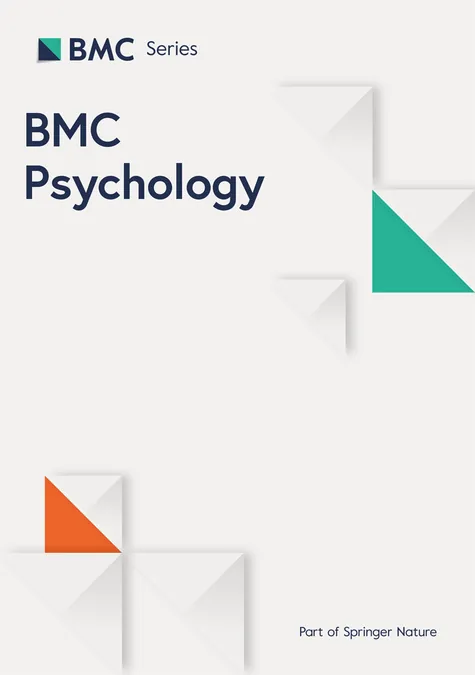
Unveiling the Crisis: The Alarming Impact of Domestic Violence on Postpartum Mothers in Iran
2024-09-29
The Harrowing Reality of Domestic Violence Against Women
Domestic violence against women is an insidious and pervasive issue that spans across cultures, manifesting in various forms including physical, emotional, and sexual abuse. It is particularly alarming that intimate partner violence (IPV) affects one in three women throughout their lives, with the World Health Organization estimating that a staggering 35% of women have encountered such abuse globally—this figure ascends to as high as 38% in developing nations like Iran. Notably, a recent study highlighted that a shocking 68.7% of pregnant women in Iran face some form of domestic violence during their pregnancy.
The complex relationship between pregnancy, postpartum challenges, and IPV cannot be understated. While some researchers argue that pregnancy may strengthen marital bonds, others contend it heightens stress, providing fertile ground for violence. Alarmingly, data suggests that 58% of Iranian postpartum women experience IPV, raising fears of adverse impacts not only on maternal health but also on child development.
The Ripple Effects of Abuse: Mental and Maternal Well-being at Stake
The repercussions of domestic violence extend far beyond physical harm. Evidence points to a stark correlation between IPV and mental health disorders among mothers, including depression and anxiety. For instance, mothers experiencing IPV are more likely to suffer from postnatal depression—research indicates these women are at a 3.28 times greater risk. An overwhelming increase in anxiety and post-traumatic stress disorder (PTSD) rates has also been documented, with those affected by violence showing significantly diminished maternal functioning.
A Glamorous Life Reimagined: From Irreplaceable Joy to Inescapable Struggles
The postpartum period should ideally be a time of joy and bonding between mother and child; however, when violence is present, this ideal fades. Women subjected to IPV report diminished ability to fulfill maternal duties, suffering from troubling psychological consequences that hinder their interaction with their newborns. They often struggle to meet their children's needs, compromising physical and emotional well-being in both mothers and babies.
To unravel this issue, a study involving 316 women who recently gave birth was conducted in Al-Zahra and Taleghani Educational Treatment Centers in Tabriz, Iran. Following these mothers over several weeks revealed alarming statistics: an astonishing 84% reported experiencing some form of IPV, with a significant proportion indicating psychological abuse, physical violence, and sexual coercion.
Crucial Findings: The Human Toll of Domestic Violence
Researchers found marked disparities between women who experienced IPV and those who did not. Not only did women in abusive relationships exhibit heightened levels of anxiety and depression, but their overall maternal functioning scores were significantly lower as well. The analysis clearly demonstrated that women with supportive partners and adequate prenatal care fared better, showcasing the need for robust social support systems.
Here are some alarming statistics uncovered: - **84%** of mothers reported IPV during the postpartum period. - Women who encountered violence had a significantly lower average score of maternal functioning. - Psychological abuse was the most commonly reported form of violence.
A Call to Action: Addressing the Crisis of Domestic Violence
As these findings shed light on an urgent crisis that warrants immediate attention, they call for systemic changes within healthcare frameworks in Iran to prioritize screening and addressing the needs of affected women. Notably, the absence of formal mechanisms for identifying cases of IPV in Iran exposes women to prolonged suffering and neglect.
The ramifications of IPV go beyond the immediate threats to physical safety; they impact mental health, parental capacity, and child development, intertwining societal, cultural, and economic factors. Future research should pivot towards integrated healthcare models that provide comprehensive support for women's mental health, financial stability, and educational resources, thus breaking the cycle of abuse.
In conclusion, the relationship between maternal health and domestic violence is intricate and fraught with challenges. Yet, by unraveling these patterns and prioritizing care for victims, society can hope to improve outcomes for mothers and their children, transforming a grim reality into a brighter future. The time for action is now—let us stand together to protect the most vulnerable among us.


 Brasil (PT)
Brasil (PT)
 Canada (EN)
Canada (EN)
 Chile (ES)
Chile (ES)
 España (ES)
España (ES)
 France (FR)
France (FR)
 Hong Kong (EN)
Hong Kong (EN)
 Italia (IT)
Italia (IT)
 日本 (JA)
日本 (JA)
 Magyarország (HU)
Magyarország (HU)
 Norge (NO)
Norge (NO)
 Polska (PL)
Polska (PL)
 Schweiz (DE)
Schweiz (DE)
 Singapore (EN)
Singapore (EN)
 Sverige (SV)
Sverige (SV)
 Suomi (FI)
Suomi (FI)
 Türkiye (TR)
Türkiye (TR)